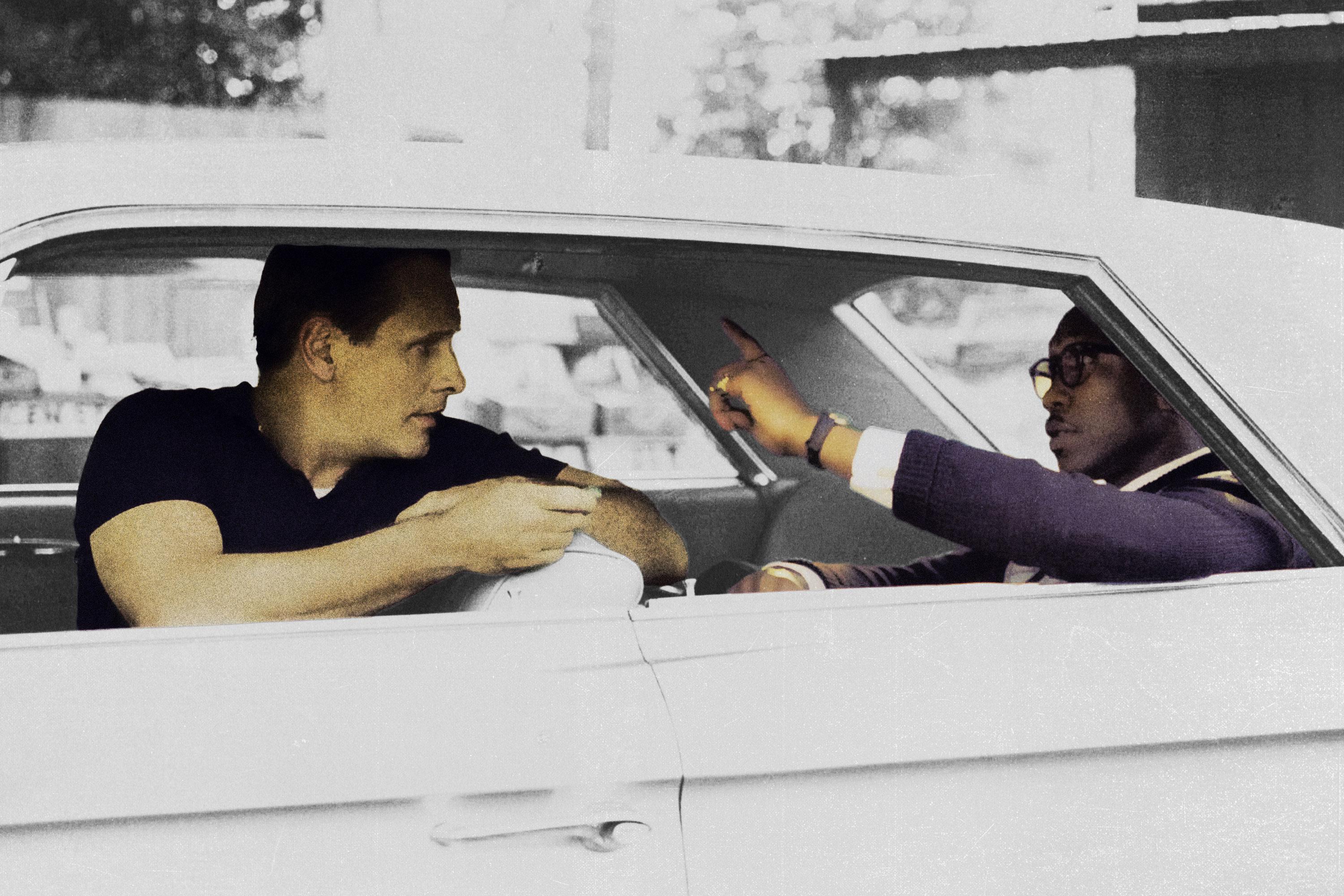The Oscars says it wants to change. It wants to be more diverse. It wants to evolve. It wants to maintain its primacy in a world of divided attention spans and fractured worldviews. It wants to capture the hearts and minds of moviegoers, to reflect their love of film and explore where the medium is taking us. It wants to thrive, to respect the past and lead the way to a blessed future. It also wants Green Book.
What a disastrous and fascinating six months it has been for the Academy of Motion Picture Arts and Sciences. Green Book has won Best Picture, and the Oscars has Oscars-ed once more. Peter Farrelly’s docudrama about the friendship between chauffeur Tony “Lip” Vallelonga and musician Dr. Don Shirley was the subject of a vociferous outcry that may have led to the Academy’s first-ever anti-backlash—seen from one angle, one might even call it a whitelash. The temptation to compare it to President Donald Trump’s election is too strong to resist. It’s been an unusual and yet somehow inevitable journey for the film, which premiered to extraordinary enthusiasm in September at the Toronto International Film Festival, winning the fest’s audience award and confirming its place in the Oscar race. Over the ensuing five months, it has been subject to all the stations of the Oscars cross: pilloried by critics who called it a simplistic, retrograde vision of race relations; undermined by Shirley’s family, who said that neither Farrelly nor the other filmmakers contacted them, and that they mischaracterized elements of his life in the film; and, on the heels of a Best Comedy win at the Golden Globes, seemingly relieved of its chances at Oscar glory after a pair of stories about screenwriter Nick Vallelonga’s racist tweets about 9/11 and Farrelly’s proclivity for exposing himself on film sets were unearthed and widely circulated. No matter, it won anyway.
Why exactly did this happen? It’s difficult to say. In some voters circles, 2018 was considered a “soft” year, one without a clear bulldozing favorite, like The Shape of Water last year, which captured virtually every prize along the way. This year, votes were scattered across the guilds—a SAG ensemble prize for Black Panther; a Roma win at the Directors Guild; a Green Book victory from the Producers’ body. Precedent was bunk—a Marvel movie was in contention against a streaming service’s black-and-white foreign film. And both could win! This was the Oscars in the time of the simulation hypothesis. Were the invisible overlords in space ships watching us fumble movie history in real time?
For months, voters assured me that Roma had stitched the prize up. I prepared my sweeping proclamations about the Netflix Century, when all entertainment must be beamed between that thudding “N” logo. In the past two weeks, that tune changed to Green Book. It’s going to win, watch out, I was told. Voters in the Academy would not be told how to place their votes, could not be told that Farrelly’s film wasn’t an uplifting and big-hearted tale of unlikely friendship. In a way, it is aspirational voting. Green Book shows us the world voters want—a place where understanding can be arrived at through music and pizza—instead of the one we have, the one where babies are stillborn, where the KKK terrorizes, where presidents are puppets and royalty reigns with a fatuous hand. I can see why voters went for it, why they wanted to feel good and not broken by their own awards show. And with the structure of preferential balloting, Green Book didn’t need every single first-place vote. Just a whole lot of second- and third-place votes in this highly stratified year. If I had to guess—and I do, because the Academy never reveals its voting totals—I’d figure that Green Book nabbed a whole lot of second-place votes, after the passion votes of films like The Favourite and Black Panther fell away in the preferential ballot. And that Netflix fervor I had planned for? That may have worked directly against Roma, as an avatar for the domineering, free-spending, Galactus-minded pursuits of the company. The streamer’s quest to have it all—heavily funded and expertly managed as it was—proved elusive for at least one more year. (That teaser for Martin Scorsese’s forthcoming The Irishman during the telecast was no accident. 2020 awaits.)
And so 30 years after Driving Miss Daisy’s win and 30 years after Spike Lee was overlooked for a powerful film about the inescapable bonds of our country’s history of racial injustice, Green Book drove to victory. You can’t make this shit up. What specifically does this mean for the Oscars? This is perhaps the circumstantial last gasp of a generation being phased out of the Academy. Or it’s an affirmation of the middlebrow liberal fantasias that have won this award for decades remaining as vital to AMPAS as ever.
For months, Amanda Dobbins and I implored listeners of The Oscars Show and voters alike to reconsider A Star Is Born. As it became increasingly clear that the film was eluding the enthusiasm needed to garner genuine support—solidified by Bradley Cooper’s Best Director snub—we strained to draw attention. Some of that straining was informed by a modicum of fear around the possibility of a Green Book or even a Bohemian Rhapsody win. Were we overzealous about A Star Is Born? Perhaps. Were our concerns justified? Undoubtedly. The Oscars has a long and storied history, and much of it is marked by wrongness. To expect virtue and foresight from the Academy is to expect a pink unicorn that smells like cotton candy. Green Book’s win is not tragedy, but it instantly joins the hall of Oscar travesties.
It is also, interestingly, yet another film that has won the prize while not having a significant footprint among moviegoers. As of its win, Green Book has grossed just $70 million, making it the sixth consecutive Best Picture winner not to crack $100 million at the box office. For context, between 1997 and 2010, 11 films accomplished that feat. And it feels like the Academy is growing more and more distant from its viewers, from movie watchers writ large. Black Panther and Bohemian Rhapsody and A Star Is Born were nominated. But they never really had a chance. Not when something like Green Book—something as self-satisfyingly virtuous and surface-level—is here. And this convulsion, this rejection of film’s changing shape, is the greatest threat to the Oscars. It isn’t Netflix or superheroes or Bradley Cooper’s voice. It’s the Oscars themselves.


